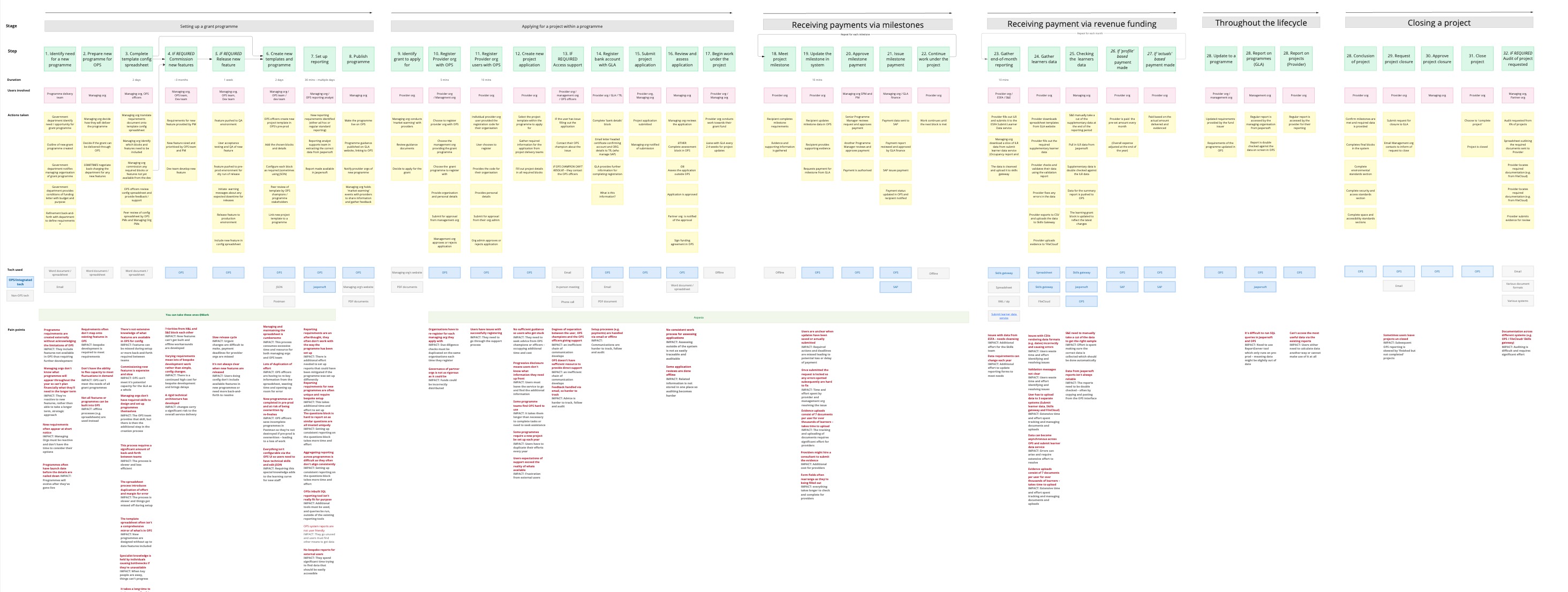The Greater London Authority (GLA) suspected that one of their key grant-making services wasn’t meeting user or business needs effectively. They asked us to review the service and recommend a way forward.
The GLA is the regional governance authority for London. Their role centres around promoting social development, economic development and wealth creation. As well as improving the environment for all who live and work in London. Part of this work involves distributing grants to a range of causes, such as helping to build affordable housing or supporting adults in education.
The funding is often provided by government departments with little notice and needing a quick turnaround. In 2016 the GLA built a system to manage this process for housing grants. Over the following years, the service then expanded to support other areas of grant-making by the GLA, such as education and employment.
The service grew to manage 50 grant programmes with a total value in excess of £10.6 billion. Through this growth, more and more bespoke features were added to the system to meet the needs of the new programmes. This ad-hoc process for delivering new features added a significant amount of complexity into the service. The increasing nuances in how the system worked meant creating new grant programmes, or training new staff members, became increasingly challenging and disproportionately time-consuming.
Therefore, the GLA asked us to help them find out to what extent the existing grant management system was, or was not, meeting its users' needs. As well as provide recommendations of what the GLA should do to address any issues identified.
We conducted an 8-week discovery phase to help us answer these questions. To make sure we fully understood how the current service worked, and was meeting its requirements, we:
Once we had an idea of how the existing service was performing, we could begin to make recommendations based on:

Over the course of the discovery, we found that the two primary stakeholder groups had divergent needs around grant-making. Balancing these needs would become the most significant challenge for a new service to resolve. We needed to assess if it was sensible for these two user groups to share the same service, or simply use their own dedicated services.
This challenge was exacerbated by the fact that grant-making was not confined to only these two groups within the GLA. Other teams across the organisation were found to be using their own grant management tools and processes too. Our collaborative workshop highlighted this issue with the GLA’s senior leadership. It opened up a discussion around the broader strategy for grant making across the GLA, rather than focusing on just the scope of the existing grant management product.
We presented our analysis and findings back to the senior leadership team. This included a range of different approaches they could take for delivering the next iteration of their grant making tool. Each approach being assessed against their benefits, effort, risk and cost profiles.
We recommended a staged approach to implementing our recommendations:
Our findings highlighted a range of issues to senior management. By engaging them in collaborative workshops, we helped foster a holistic view and shared understanding of these across their team.
“I genuinely am so impressed with the level of detail and the way it has been structured and presented. I know it will play a crucial role in the transformation plans.” Senior stakeholder, Greater London Authority
“Really good engagement by the Marvell team.” Feedback from a collaborative workshop
The GLA went on to promptly begin actioning our recommendations. They immediately began making the required fixes to stabilise the service and implemented a Head of Grant Giving with the responsibility of helping define an overall strategy for grant-making across the organisation.
They’re currently conducting an organisation-wide audit of their grant making tools and processes. This will be used to inform the strategy and scope for a new, unified view of grant-making for all teams within the organisation.
Whether you’re ready to start your project now or you just want to talk things through, we’d love to hear from you.